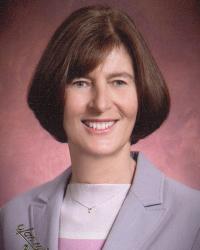Religious devotion linked to educational outcomes, study finds
Students who identify themselves as “very religious” often have better educational outcomes than their less religious counterparts, according to a study by Research Director Ana Puig and Associate Professor Mary Ann Clark.
GAINESVILLE, Fla. — Adolescents who consider themselves “very religious” are generally more likely to finish college than their less devout counterparts, according to a University of Florida study.
But before you write off a nonreligious teen as one not bound for college, take note: Researchers still aren’t sure why “religiosity” and college graduation are connected.
“For most religious communities represented in our study, there is a strong correlation between religiosity and degree attainment,” said Ana Puig, research director and affiliate faculty member in counselor education at UF’s College of Education. “However, correlation does not mean causality.”
Puig and UF counselor education professor Mary Ann Clark joined UF alumnus Sang Min Lee in an analysis of data from the National Educational Longitudinal Study, a massive, federally funded study of student outcomes that began 20 years ago. Lee, who is now a professor at Korea University, was the principal investigator on the project.
The study, which appeared late last year in the journal Counseling and Values, won the Biggs-Pine Award for Writing Excellence this spring from the Association for Spiritual, Ethical and Religious Values in Counseling.
The researchers used data from a survey of 11,551 eighth-grade students in 1988—a survey that asked a number of lifestyle-related questions, including questions about religious faith—and compared it with information collected from the same students eight years after they graduated from high school.
They found that among most religions or denominations, students who self-identified as “very religious” in eighth grade were far more likely to have, or be on their way to getting, a college degree—when compared with students who said they belonged to a religious faith, but identified as “not religious” or “somewhat religious.”

Puig
The effect was most pronounced in the Muslim community, with “very religious” Muslim students nearly four times as likely to attain a degree as “nonreligious” Muslims. All other groups in the study showed a statistically significant increase in degree attainment among “very religious” students.
The effect was negligible or nonexistent in groups with high across-the-board degree attainment, including Jewish students, Episcopalians and students who identified as belonging to the broad group of “Eastern religions.”
When the results were broken down by ethnicity, the researchers found that a high degree of religiosity was related to degree attainment in white, African-American and Hispanic students. Lee noted that religiosity was not a significant factor in degree attainment in the Asian-American population.

Clark
The researchers say relationship between religiosity and degree attainment may be due to certain positive behavioral effects related to participation in a religious group. They cite previous studies that link religious participation to reduced delinquent behavior—a factor likely to affect educational outcomes.
They also note that some parents of academically successful children cite religious values as a factor in their success. Clark has been conducting interviews with parents of secondary school students for an unrelated study on gender and school achievement, and she says the topic of religiosity comes up quite often.
“I’ve been surprised at how often parents brought up religion as a factor in their child’s academic performance, even though we weren’t even asking about it,” Clark said. Even so, it is possible that good grades and religious involvement stem from the same root cause, such as a specific parenting style, the researchers said. The researchers also note that the survey suffers the same flaws as any other study using self-reported data, and that the results may reflect a tendency, among high-achieving students, to portray themselves in a positive light.
While the study shows outcomes of students who identify with a religion and still describe themselves as “nonreligious,” it does not reflect the religious outcomes of atheists or agnostics. While the survey allowed students to select “none” as their religion, respondents in that category were too few to be included in the analyses. The same was true for Mormon respondents and those who identified as “other Christian” and for Native American students.
However, the study does offer insights that teachers and counselors can use in improving student performance, Clark said. Because religious differences are often too hot a topic for the classroom, Clark said, educators may feel inclined to steer conversation away from the topic of faith. However, it is important that educators listen to what students are saying, and acknowledge the role religion may play in their school lives.
“Students and parents are saying that religion is an important part of their academic lives, and we need to listen to that,” Clark said.
— Tim Lockette
.LR.jpg)




